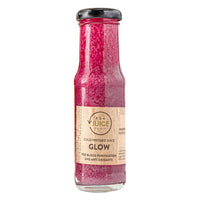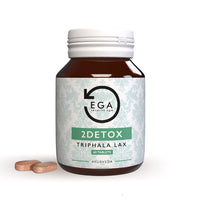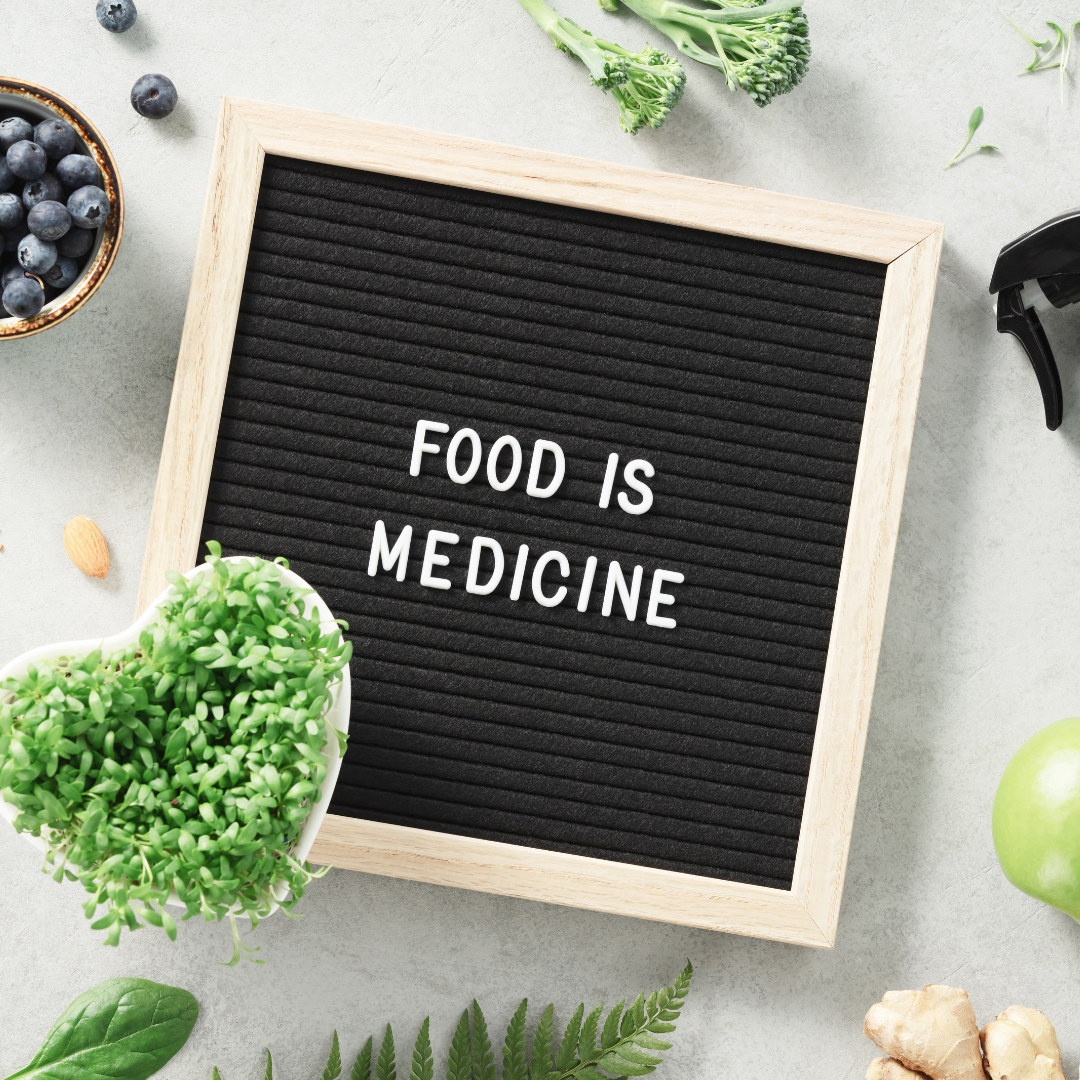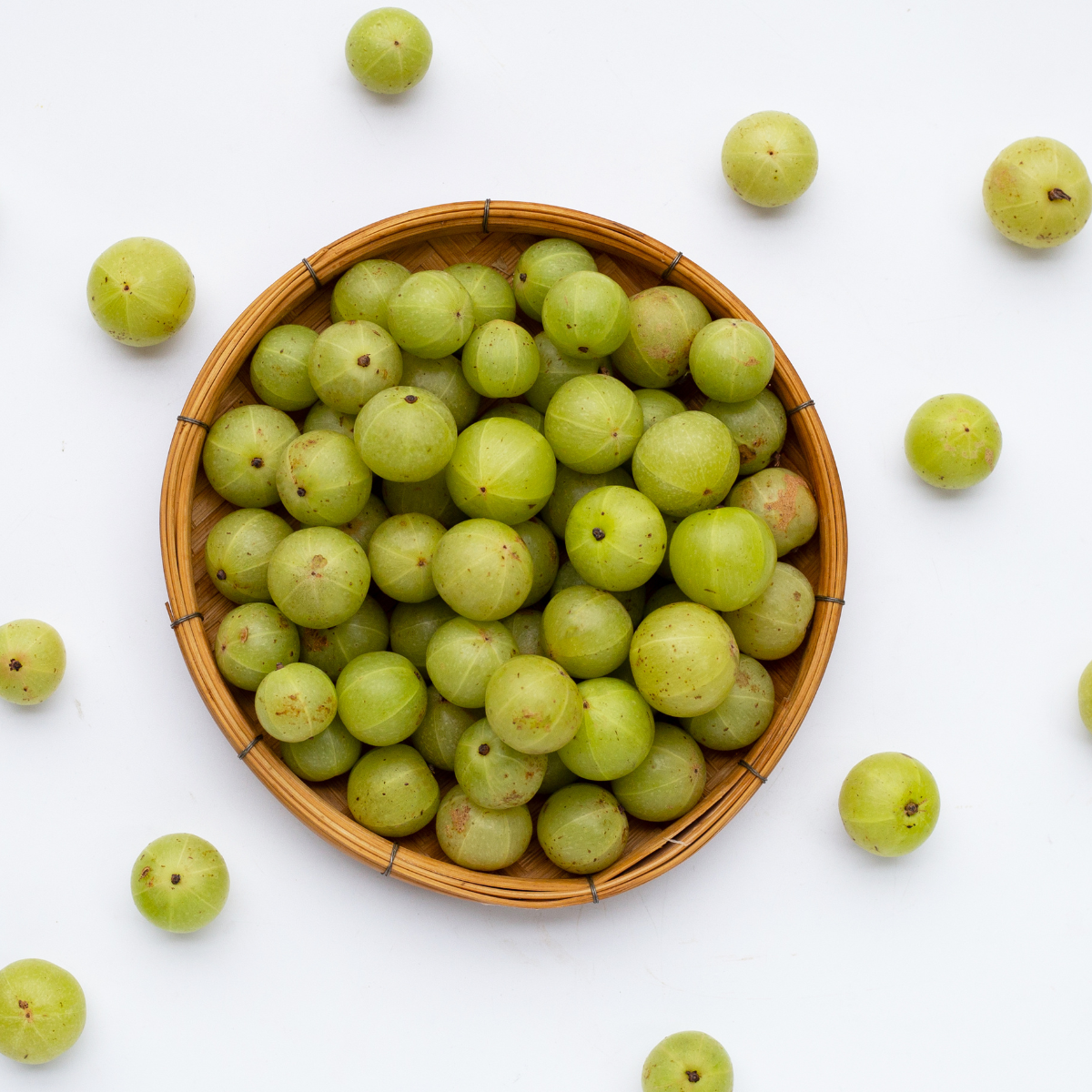तन्मना भोजनगतः चित्तः ।
The concept of food as medicine, is one of the founding principles of Ayurveda, that believes first in preserving the health of the healthy and only then treating a disease. Modern healthcare is also increasingly focussing on approaching disease treatment and prevention from a holistic viewpoint involving nutrition in diet, lifestyle, exercises & mental wellbeing versus medication management alone. The most effective way to follow the principle of food as medicine begins at home - what and how we consciously choose to eat on a daily basis. Your food choices have a big impact on how well you feel overall.
Dietary choices affect disease risk, according to research. While certain foods can make chronic health problems worse, others offer powerful therapeutic and protective qualities. Although it is not always the case, altering one’s diet and lifestyle can frequently help prevent, treat, or even cure a variety of ailments. A thoughtful diet, however, cannot and shouldn’t always replace medication, you must seek medical consult at the right time, when needed.
Eating affects how your body is nourished and protected
Many nutrients in diet promote wellness and protect your body from disease.
Eating a balanced diet of nutritious foods is essential because their unique ingredients combine to produce effects that cannot be obtained by taking supplements.
Definition of 'pathya'
पथ्यं पथोऽनपेतं यद्यच्चोक्तं मनसःप्रियम् |
यच्चाप्रियमपथ्यं च नियतं तन्न लक्षयेत् ||४५||
Unhealthy diet can increase the risk of disease.
Fast food, processed grains, and unhealthily high sugar diets are the main causes of heart disease, diabetes and obesity. Your gut bacteria are harmed by these processed meals, which also increase your risk of disease overall, insulin resistance, and chronic inflammation.
Optimal nutrition and a balanced diet help prevent disease
However, evidence shows that eating a lot of plant foods, nutrient-dense foods and avoiding processed foods improves your health.
For instance, diet which is high in whole grains, vegetables, and healthy fats, is associated with a lower risk of heart disease, diabetes, several malignancies and obesity.
Vitamins and minerals
Although your body only needs vitamins and minerals in very small amounts, they are nevertheless vital to your health and proper functioning of the body.
However, our modern and hectic lifestyles dictate diets that are frequently inadequate in vitamins and minerals because they tend to be low in whole foods like fresh produce and high in processed food. These deficiencies can dramatically raise your chance of getting sick.
For instance, low vitamin C, D, and folate intakes can impair your heart and immune system, respectively, and increase your risk of getting some malignancies.
Colourful & citrus fruits, leafy and cruciferous vegetables, wheatgrass, moringa, whole grains, nuts and seeds are a rich and varied source of vitamins and minerals.
Favourable plant compounds
All nutrient-dense foods, such as grains, legumes, vegetables, and fruits also include a variety of beneficial compounds, such as antioxidants.
Antioxidants protect cells from damage that could otherwise result in disease. Read about how Amla, or the Indian Gooseberry, is one of the richest sources of anti-oxidants and thus a vital ingredient in so many food products.
In fact, studies have found a link between diets high in polyphenol antioxidants and a decreased risk of heart disease, diabetes, dementia, and depression.
Fiber
A diet rich in fibre is crucial for good health. It promotes normal excretion and digestion while also nourishing the stomach’s beneficial flora.
As a result, foods high in fibre, such as fruits, grains, dates, beans, and vegetables, help to boost your immune system, lessen inflammation, and protect you from disease.
On the other hand, diets lacking in fibre have been related to an increased risk of stroke and colon cancer.
Protein and healthy fats
Your body uses whole, nutrient-rich foods that are high in protein and fat for a range of essential functions.
The building blocks of protein, amino acids, support immunological health, muscle synthesis, metabolism, and growth, whereas fats offer energy and aid in nutritional absorption.
Omega-3 fatty acids, which are present in foods like fatty fish, are related to better heart and immune health and help control inflammation. Good quality A2 milk, ghee sattva (the purest oil extract from the process of making clarified butter), vegan plant based milks like coconut and almond milk are also great sources of healthy fats and proteins.
Healthy eating habits have been linked to longer lifespans, reduced rates of depression, and greater self-reported quality of life than diets dictated by fast living, including processed foods.
Can eating alone cure illness?
Despite the fact that some dietary decisions can either lower or increase your disease risk, not all diseases can be prevented or cured just by diet.
There are many more elements that can affect your health and disease risk.
The subject of disease risk is complex. Even if a poor diet may result in or contribute to illnesses, there are many other aspects that need to be considered.
Other factors that affect health include genetics, stress, pollution, age, sicknesses, workplace dangers, and lifestyle choices including drinking alcohol, smoking and not exercising.
Food cannot compensate for bad lifestyle choices, a genetic or other susceptibility to a certain disease, etc.
Foods and practices with potent therapeutic and healing qualities
In Ayurveda, the gut is considered the doorway to health and disease. Most lifestyle and metabolic diseases originate in the gut due to vitiation of one or more of the three doshas and a weak digestive fire or 'agni' that leads to accumulation of metabolic toxins in our body over time. When left untreated, these lead to lifestyle diseases like obesity, T2 Diabetes, heart ailments, skin diseases, hypertension, arthritis and many more.
Here are some of Ayurveda's time-tested principles, foods and all-natural supplements that help to keep a strong digestive fire and overall good metabolic health.
Fast to Detox. Ayurveda has a simple do-nothing approach to detox which is fasting. When the body does not have to digest solid food, the digestive system is rested and the body can focus on healing, repairing & reigniting digestion. If you are new to fasting and doing a no-food fast is difficult for you, try a juice fast. Juice fasting helps work wonders! Juices hydrate, are easy to digest, provide essential nutrients & energy to sustain a whole day of fast, flush out toxins from intestines, tissues & organs and require low digestive effort while nourishing so the body can focus on healing. Try Singapore's best selling Ayurveda Juice Cleanse program.
Spices. Spices like turmeric, ginger, lemon, cinnamon and superfruits like amla are loaded with healthy phytochemicals that support a a robust immunity, a healthy gut and a strong digestive fire. Include these in your daily cooking or in the form of healthy easy-to-drink daily powershots.
Herbs. Natural supplements and adaptogens like Triphala, Ashwagandha, medicinal Turmeric and Guduchi are some of the best known Ayurveda herbs that can help prevent, control and even reverse lifestyle diseases like Diabetes, Hypertension, Weight Gain, Insomnia or Chronic Stress, when taken along with a correct diet and lifestyle corrections. Triphala is in fact the most recommended Ayurveda supplement, that helps detox, regulate bowel movement, alleviate constipation and bloating. Not only is this a mild daily laxative, but also a detox that cleanses toxins at a cellular level. It is nourishing and helps rejuvenate cells and tissues; it is known as one of the best anti-ageing herbal supplements. A 100% natural product and a great multi vitamin to have on a regular basis. Long term use has shown great effect on skin and hair health.
Final thoughts : How Much to Eat
You need a certain number of calories per day to maintain healthy weight or lose weight, depending on your age, gender, body type and amount of physical activity. But it is not practical for many to keep a calorie count with every meal. Moreover one starts to obsess and worry about the calories while eating, making the process of eating and savouring a meal, instead a chore!
A better approach : Follow the Ayurveda principle of 1/3rds. One should eat only so much of solid foods that occupy one third space of the stomach; the next third should be filled with liquids in the food or other liquids and the remaining third of the stomach should be reserved for the generation and action of the Vata, Pitta and Kapha Doshas. The simple manifestation of this advice is that eating should not cause any uneasiness in stomach, should not throw any reflex pressure on the heart, should not cause a visible expansion of ribs or should not make the stomach feel unusually heavy. Simply put, do not overeat :)!












